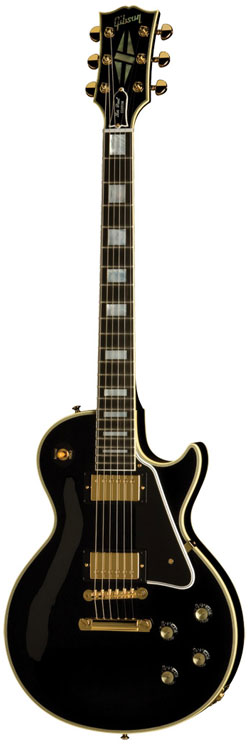Knock on Wood: Importers Fret After Feds Raid Guitar Maker Under Lacey Act

Photo by Gibson Guitars
Last summer federal agents raided the Gibson Guitar Corp.’s Nashville facilities, seizing raw woods, completed guitars and computer equipment in the process. While theories abound about why the feds raided the guitar maker for the second time in two years, the raids have sparked a great deal of fear and worry among businesses that import raw materials from abroad for manufacturing, says Beatrice O’Donnell of Duane Morris in Philadelphia.
We asked Quinnipiac University law professor and guitar enthusiast John Thomas to explain the Lacey Act, which—according to a widely available affidavit from the federal government—was the basis for the Gibson raids.

Illustrations by Jeff Dionise
THE LACEY ACT
Named for Iowa Congressman John Lacey, the 1900 legislation federalized state game laws by making it illegal to bag game in breach of one state’s laws and transport it to another state. Over time, Congress extended the Lacey Act to apply to transportation across international borders and then to logging. In 2008, a unanimous House Committee on Natural Resources approved its extension to lumber and “plant products” and it became law via the Food, Conservation and Energy Act, over President George W. Bush’s veto.
The Lacey Act incorporates the law of the place of harvest and permits U.S. officials to make an independent determination of whether a harvest violated a foreign or domestic law.
The woods at issue in the action against Gibson come from India, and the U.S. attorney’s office alleges that their exportation violated Indian law. The case has generated dramatic discussion, often pitting environmentalists against those advocating a smaller federal government and citing the Lacey Act as an example of overregulation. This “illustrated guide” offers a primer on the laws and issues involved in the case.
CITES
The Convention on International Trade in Endangered Species restricts the export and import of some endangered woods, like Brazilian rosewood, but not the Indian ebony and Indian rosewood favored by Gibson. India does not ban their exportation, but the law does restrict the thickness of wood products that may be exported.
THE LUMBER
Most countries, including the U.S. and India, use the World Customs Organization’s coding classification system (HS) in trades. Indian law bans the export of wood products classified as HS 4407: “Wood sawn or chipped lengthwise, sliced or peeled, whether or not planed, sanded or end-jointed, of a thickness exceeding 6 mm,” but allows the exports of woods thinner than 6mm, classified as HS 4408.
GUITAR FINGERBOARDS
At the center of the dispute are a variety of customs declarations for some 2,500 ebony “fingerboard” blanks that the government claims to be 10 millimeters thick.
Indian export documents identified the fingerboard blanks as HS 9209: “Parts (for example, mechanisms for music boxes) and accessories (for example, cards, discs and rolls for mechanical instruments) of musical instruments.” U.S. officials contend that HS 9209 applies to finished goods only to be fastened onto a guitar. Fingerboard blanks need to be shaped and have frets installed. U.S. officials also claim that customs entry declaration form 3461 designated the fingerboards by HS 4408, the code for woods thinner than 6 mm. Gibson’s Lacey Act declaration form (PPQ 505) properly designated the woods by HS 4408 and the “certificate of origin” that accompanied the items designated the items as 10 mm thick.
U.S. officials also claim Gibson was not identified as the final consignee in customs form CPB 7505. An airline waybill identified the recipient as German wood importer Theodor Nagel and contained a note to Windsor, Calif-based Luthiers Mercantile International. Another customs form, according to the warrant, listed LMI as the importer of record and final consignee.
Only the Lacey Act declaration form identified Gibson as the ultimate consignee.
Records on file with Gibson’s customs broker list 11 similar shipments to Gibson, all designating the fingerboard blanks (on these occasions, rosewood fingerboards) with HS 4707, the thicker wood that Indian law bars from exportation.



